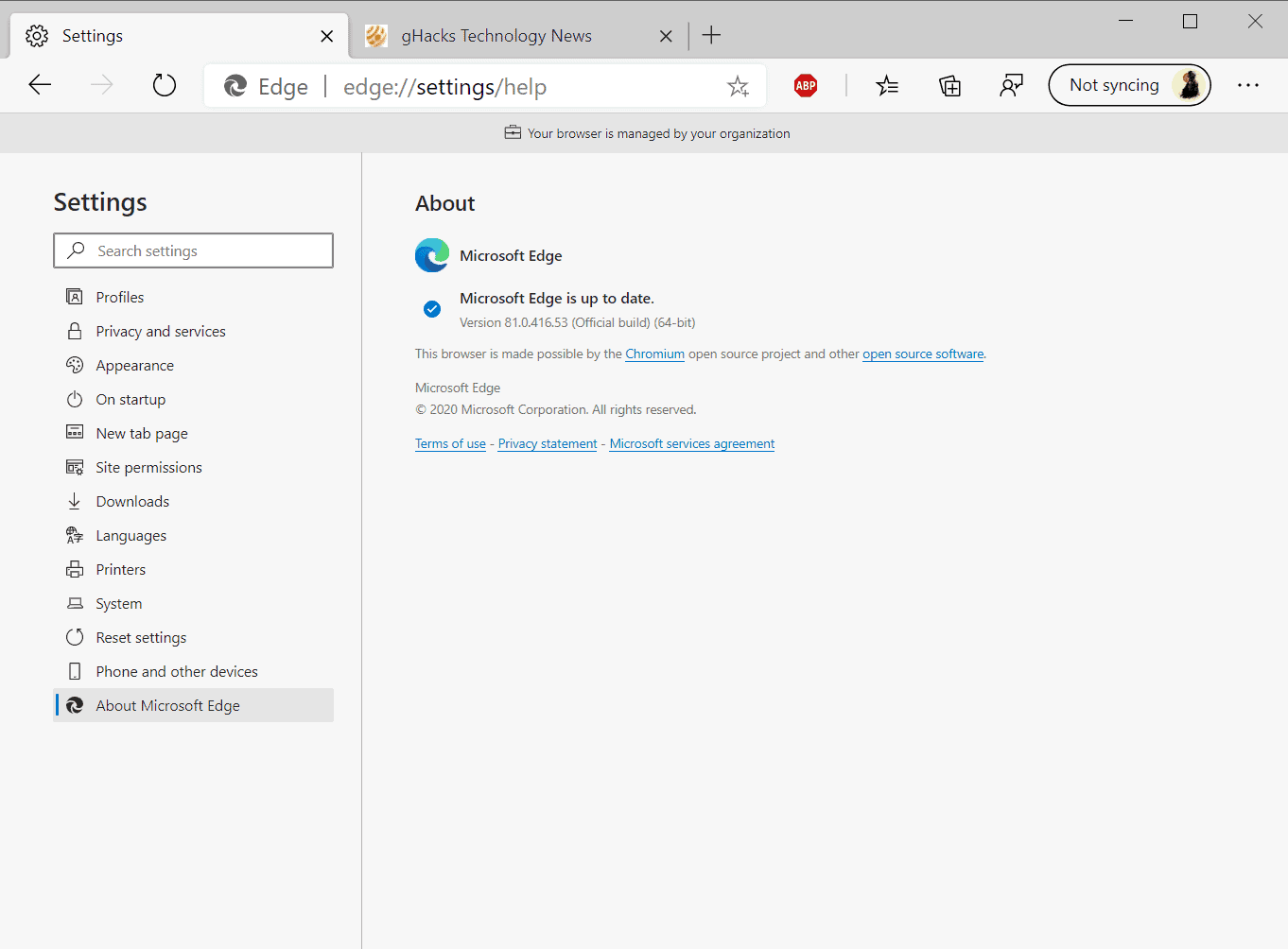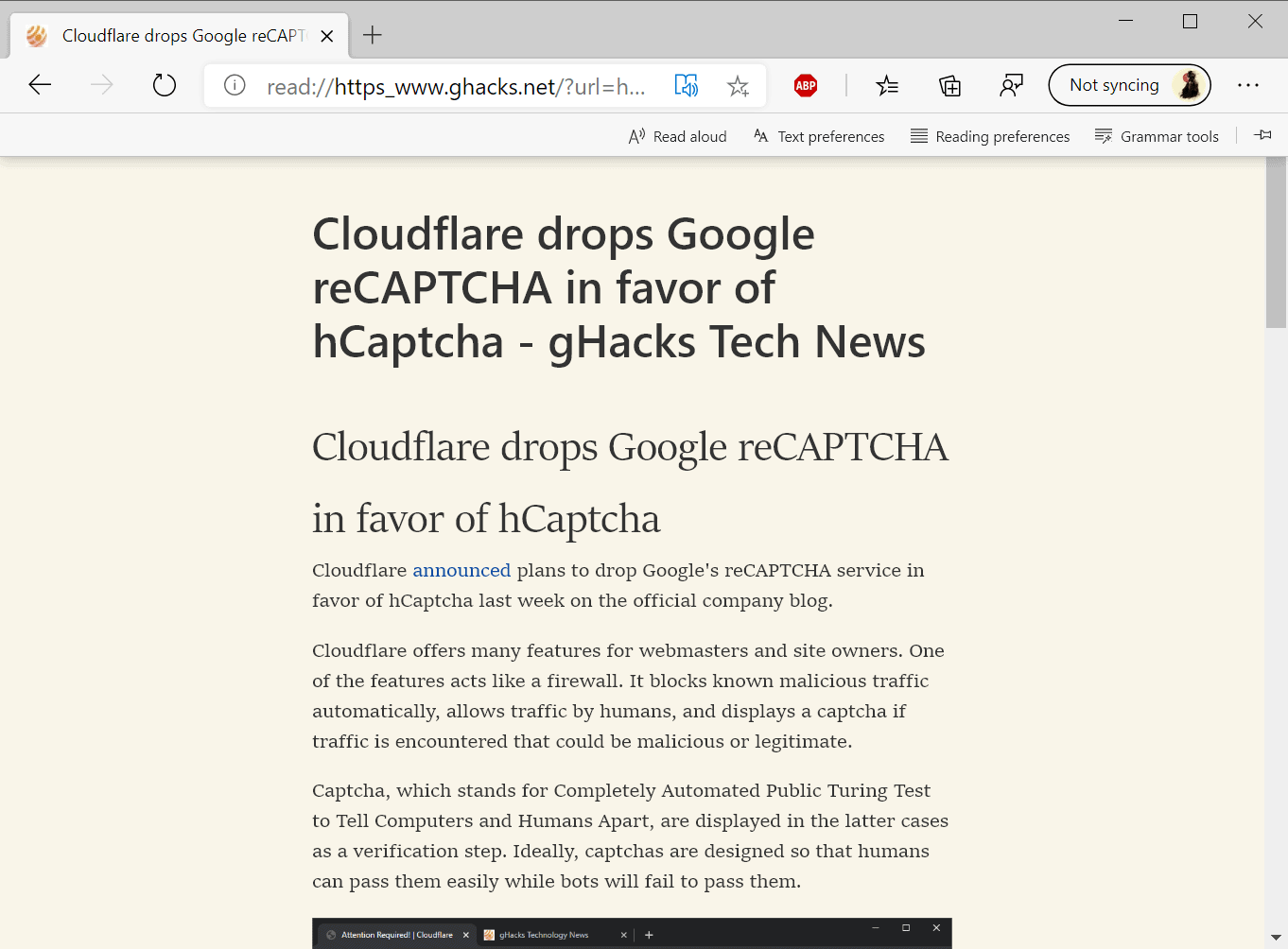Microsoft released a new stable version of the company's Chromium-based Microsoft Edge web browser yesterday evening. The release is already available and should be picked up automatically on most systems. Users may download the new version from the official download site as well to install it manually.
Tip: load edge://settings/help using the browser's address bar to display the current version and run an update check.
Microsoft announced on March 31, 2020 that it would skip the release of version 82 as well (Google announced that it would do so some time ago). Edge 81 will therefore be upgraded to Edge 83 eventually.
Microsoft Edge 81 Stable

The changelog highlights many new and improved features. You can check it out on Microsoft's Docs website if you want to read it in its entirety.
Here are the highlights:
- The Collections feature has landed in Edge Stable. Collections allow Edge users to add webpages to groups, e.g. travel, job, or shopping, to keep them all in one place. Users who have no use for collections may right-click on the Collections button in the browser UI to hide it from the toolbar.
- Application Guard Extensions support available in the container.
- Developer Tolls (F12) are localized in ten languages. Also, 3D View tool updated.
- Support for Dolby Vision playback (requires Windows 10 April 2018 Update or newer).
- New Favorites tool to detect and remove duplicates. You may access it with a click on the Favorites icon in the Edge address bar.
- Better visual differentiation between regular and private browsing windows.
- Users may now set a default profile that links should be opened in (configure under edge://settings/multiProfileSettings).
- Warning is displayed to users who sign in with a different account than the previously signed in to avoid unintentional data merging.
- Microsoft account payment cards can now be used in Microsoft Edge.
- Integration with Windows Speller on Windows platform 8.1 and above for better language support.
- PDF document reader now supports highlights, color changes, and the deletion of highlights.
- F9 shortcut to open the Immersive Reader.

- Ctrl-Shift-U shortcut to use Read Aloud functionality.
- New MSI command to suppress the creation of a desktop icon; MicrosoftEdgeEnterpriseX64.msi DONOTCREATEDESKTOPSHORTCUT=true.
Microsoft added eleven new policies in this release. Administrators need to download the updated Administrative Templates.
- AmbientAuthenticationInPrivateModesEnabled - Enable Ambient Authentication for InPrivate and Guest profiles.
- AudioSandboxEnabled - Allow the audio sandbox to run.
- ForceLegacyDefaultReferrerPolicy - Use a default referrer policy of no-referrer-when-downgrade.
- GloballyScopeHTTPAuthCacheEnabled - Enable globally scoped HTTP auth cache.
- ImportExtensions - Allow importing of extensions.
- ImportCookies - Allow importing of Cookies.
- ImportShortcuts - Allow importing of shortcuts.
- InternetExplorerIntegrationSiteRedirect - Specify how "in-page" navigations to unconfigured sites behave when started from Internet Explorer mode pages.
- StricterMixedContentTreatmentEnabled - Enable stricter treatment for mixed content.
- TLS13HardeningForLocalAnchorsEnabled - Enable a TLS 1.3 security feature for local trust anchors.
- ConfigureOnPremisesAccountAutoSignIn - Configure automatic sign in with an Active Directory domain account when there is no Azure AD domain account.
The policy OmniboxMSBProviderEnabled has been renamed to AddressBarMicrosoftSearchInBingProviderEnabled.
The two policies are still available but deprecated: WebComponentsV0Enabled and WebDriverOverridesIncompatiblePolicies.

0 Comments